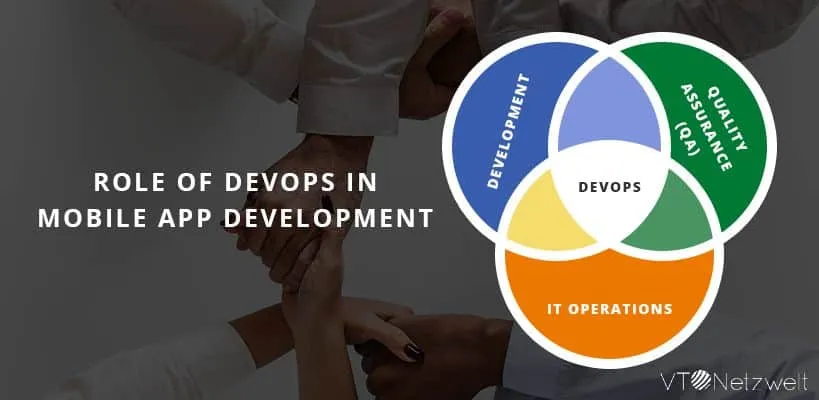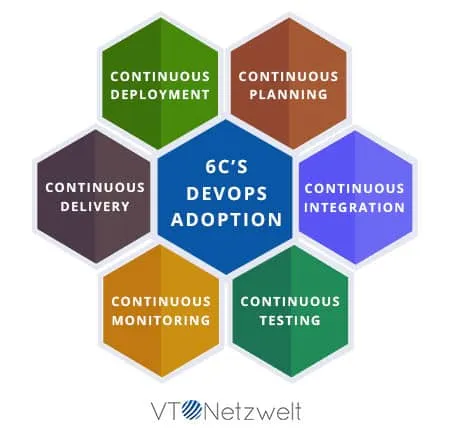- Continuous Software Delivery
- Enhanced Customer Experience
- Faster Resolution of Bug Fixes/Problems
- Higher Employee Engagement
- Faster Delivery of the Product
- More Stable Environment for Easy Deployments
- More Time for Innovation
- Increased Efficiency



Over the past 5 years, Android and iOS devices have become the primary source of accessing the internet for millions of people around the globe. These trends have scrambled many industries to adapt to the shift in business application users by developing a mobile app for their business application.
During the early years of this shift, IT industry focused on meeting the market demand and businesses focused on creating a market presence and they overlooked to focus on app development due to costs, security, maintainability, code quality, etc.
Presently as the underlying surge has settled down, it’s a great opportunity to focus on these issues and embrace new methodologies to lessen cost and increase quality. It is high time for companies to embrace the mobile-first approach and focus on building their business application for both iOS and Android ecosystem.
You can hire a freelancer or in-house resource or a mobile app development company offering both Android app development services and iOS app development services.
In this blog, we will be discussing the DevOps approach in Mobile App Development, the major challenges faced, and best practices to overcome those challenges.
DevOps is a modern software engineering approach which focuses on effective collaboration between project managers, developers, operations staff while aligning with enterprise business objectives.
The conventional techniques utilized before DevOps approach lacked powerful coordinated effort between various departments of Software Development which eventually lead to additional time in development, more holes in customer pocket, and results in customer dissatisfaction.
DevOps has brought the development and operations team on the same page. Before DevOps, developers used to write the complete code and then convey it to the operations team. With DevOps process, responsibilities are distributed equally among different teams with a single goal that each team has clear visibility of application performance.
Adopting DevOps in your Enterprise offers –

Adopting DevOps in Mobile App Development can be a game-changer for many organizations. DevOps ensures that all different teams become more productive in terms of execution.
However, adopting DevOps is not an easy process as it requires a lot of technical and business decisions but once implemented successfully can bring value to the organization in terms of client satisfaction, increased efficiency, and increased revenue.
To adopt a continuous mobile DevOps workflow, all the bottlenecks and potential problems need to be identified at first.
While the basic principles of adopting DevOps for web apps and mobile apps are the same, still there are certain challenges for adopting DevOps in mobile app development. These challenges include –
Mobile applications have multiple target environment. Most of the mobile apps target multiple devices, OS versions, hardware specifications and more.
Generally, a mobile app cannot be deployed directly to a mobile device. It has to go through the App Store for iOS and Google Play Store for Android. The app goes through a submission and review process of the App Store.
Traditional deployments operate on a push model where a new version of the application can be pushed whether it is a web app or a cloud-based app. However, the process of updating a mobile app is a pull process as it is up to the user to choose whether or not he/she wants to update the app.
Nothing is worse than a 1-star rating for your mobile app. Unsatisfied customers can publically harm your brand through the medium of the App Store or Play Store. So it becomes extremely important for you to do rigorous testing using functional, usability, and performance testing techniques for your app.
Adopting Mobile DevOps in your organization requires 3 thumb rules which need to be followed –

User Experience is the most important factor nowadays. Mobile DevOps enables instant reporting and feedback, regression testing, transparent development process which results in faster troubleshooting of the errors, faster fixes, and optimized user experience.
DevOps increases the collaboration among the different departments and teams and simplifies the process of information sharing which results in faster code release.
DevOps has become the future of app development process whether it is a mobile app, web app, or server-based app. It can help an organization in transforming their development process resulting in a faster release of the products.
Seamless integration between tools and processes can contribute to the overall operational success of the organization.
VT Netzwelt is one of the leading mobile app development company offering native app development and cross-platform app development solutions following industry-leading design thinking to Agile to DevOps to Continuous Delivery.
We offer leading-edge Android app development solutions leveraging the power of Android Studio, Kotlin to deliver Android apps for smartphones, tablets, Android Wear, and Android TV.
Our team of iOS app developers helps startups and enterprises develop apps using Swift, Objective C keeping in mind the design and development guidelines of the Apple ecosystem.
We have highly skilled React Native app developers to develop visually stunning and highly functional React Native applications for both iOS and Android using a single code base.
We are one of the early adopters of the Flutter and have already helped our clients in building next-generation mobile apps for iOS and Android ecosystem.
DevOps is a modern software engineering approach which focuses on effective collaboration between project managers, developers, operations staff while aligning with enterprise business objectives. The conventional techniques utilized before DevOps approach lacked powerful coordinated effort between various departments of Software Development which eventually lead to additional time in development, more holes in customer pocket, and results in customer dissatisfaction.
Mobile DevOps refers to the application of DevOps principles and practices specifically tailored for mobile app development. It involves automating processes such as testing, deployment, and monitoring to streamline the development lifecycle, improve collaboration between teams, and ensure the rapid and reliable delivery of high-quality mobile applications.
The 6 C’s of DevOps Adoption encompass Continuous Planning, Continuous Integration, Continuous Delivery, Continuous Monitoring, Continuous Testing, and Continuous Deployment. These pillars ensure a holistic approach to DevOps implementation, fostering a culture of collaboration, automation, and continuous improvement throughout the software development lifecycle.
Adopting Mobile DevOps involves integrating automation tools for testing, deployment, and monitoring into the mobile app development workflow. It also requires fostering a collaborative culture among development, operations, and QA teams, implementing continuous integration and delivery pipelines, and leveraging cloud-based infrastructure for scalability and flexibility in app deployment and updates.
Mobile app development services for the mobile-first world encompass a range of offerings tailored to meet the unique needs of mobile-centric businesses. These services include native and hybrid app development, responsive design, user experience optimization, performance testing, and ongoing support and maintenance. By prioritizing mobile responsiveness, speed, and user experience, businesses can effectively engage and retain their mobile audience in today’s digital landscape.
Are You Prepared for Digital Transformation?
Mobile App Development
Looking for profitable mobile app ideas for startups in 2026? Explore trending ideas and hire expert mobile app development services in the USA.
Mobile App Development
How much does Flutter app development cost in the USA in 2026? See real price ranges, app category costs, and US pricing for startups and enterprises.
Mobile App Development
Planning to hire Android developers? This guide covers costs, skills, hiring models, and common mistakes to help you build apps that last.